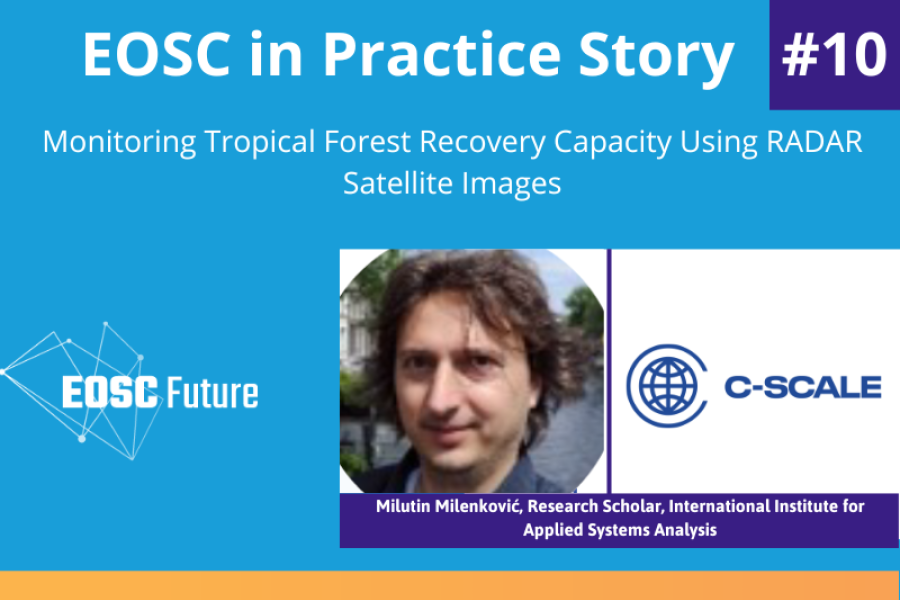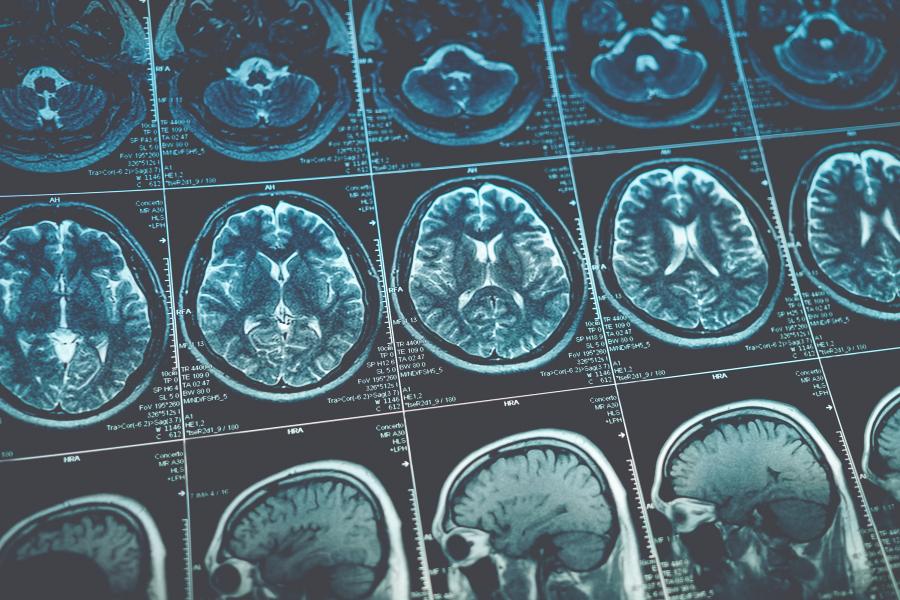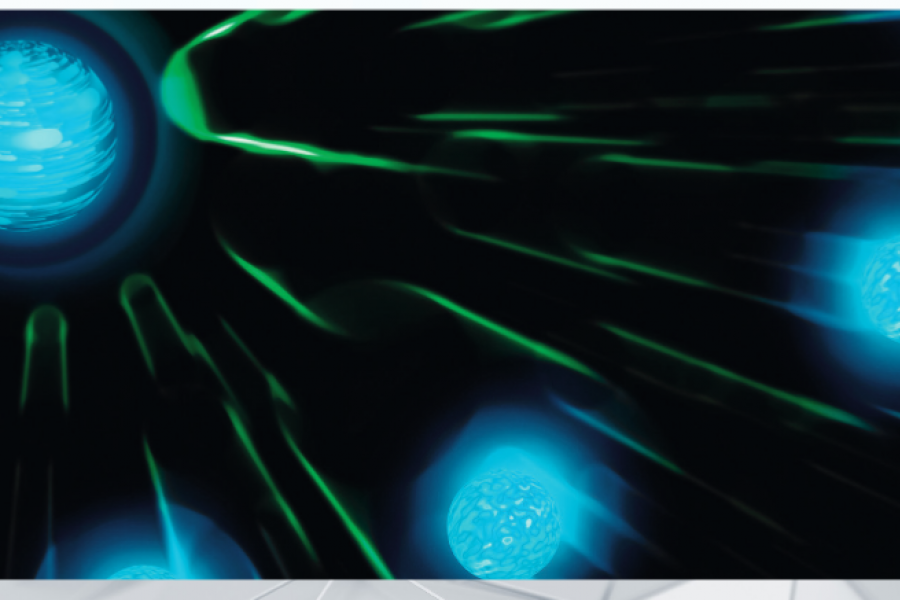EOSC in practice stories
Supporting marine data discovery and accessibility to enable cross-domain research
There are several research infrastructures or other data services running in Europe that cover a multitude of marine-related sciences, providing specific datasets coming from observations collected with different methods. These infrastructures constitute a diverse world, each looking at a piece of the big picture.
Monitoring Tropical Forest Recovery Capacity Using RADAR Satellite Images
Recent extreme droughts combined with accelerating human exploitation are pushing tropical forests to the point where they cannot recover, making them vulnerable to large unprecedented wildfires. This causes an urgent need to monitor the recovery capacity of tropical forests. To address this challenge, the SURF computing infrastructure was used.
Supporting data trustworthiness using a repository policy generation tool
NI4OS-Europe developed the Repository Policy Generator (RePol), an opensource web application that facilitates the process of drafting repository policies. RePol is available on NI4OS- Europe service catalogue, a regional catalogue through which all the project’s services are onboarded to EOSC
Developing an interoperable central hub for Social Sciences and Humanities resources.
The Social Sciences and Humanities communities needed a central point to gather and exchange information about their tools, services, and datasets. Although plenty of project websites, service registries, and data repositories existed, they were mostly fragmented.
Enabling the maximal re-use of data while ensuring IPR compliance.
Based on NI4OS-Europe’s research, legal uncertainty about usage rights and high costs in clearance of licensing issues are very often a matter of concern when it comes to newly produced content but mostly the creation of derivative works, i.e. work that is produced based on other sources. Before sharing one’s research it is important to correctly clear copyrights for any material that may have been used.
Supporting the implementation and adoption of EOSC by helping resource providers verify legal and ethics onboarding requirements.
The current version of the EOSC rules of participation report edited by the EOSC Executive Board Rules of Participation (RoP) Working Group (WG) states the standards and conduct required of EOSC participants.
Supporting cross-disciplinary research in natural sciences
This story derives from a market need identified by the service provider. There are thousands of applications in the natural sciences field who were asking for an automated plant identification system within their own applications. Examples include apps that need plant identification systems because they use this information to study the properties of soil and its quality, or because they need to identify specific agricultural practices or promote biodiversity.
Supporting data findability, reliability and replicability in Earth, Meteorology and Climate science domains
This EOSC in practice story targets three main types of users: (1) researchers using the uploaded data models for their own research, (2) national and international meteorological agencies, disseminating forecasts to their users, (3) policymakers, providing official data to governments and international organisations to support the decision made by the governments.
Supporting knowledge creation and sharing by building a standardised interconnected repository of biodiversity data
This EOSC in practice story was developed within the Cos4cloud project and targets a very wide user base as it is addressed to any researchers, teachers, students, companies, institutions and, more generally, anyone interested in knowing, studying or analysing biodiversity information.
Bringing big science experiment data to the researchers’ fingertips
This EOSC in Practice story targets both researchers involved in large science projects (via the ESCAPE project) and citizen scientists or users interested in accessing (a part of) big science experiment data for everyday research purposes (via the CS3MESH4EOSC project).
Connecting researchers, developers and citizen scientists in a unique mobile app environment.
This EOSC in practice story is developed within the Cos4Cloud project and targets three main types of users: (1) the citizen and citizen scientists who collect valuable data, (2) the researchers who use and benefit from the data collected by citizens via smartphones and sensors, and (3) software developers.
Community Use Cases
Run4science.org - Measuring environmental and biodiversity data... while running!
We want citizens to measure their environment by using smartphones. Most of the citizen science initiatives are focused on one topic: it can be air quality, biodiversity.
Kampal Artificial Intelligence for rare disease diagnosis
In the context of the EOSC-hub project, Kampal Data Solutions is benefitting from storing the healthy and ill patients’ registries to a database on EOSC infrastructure.
Guardomic: bot mitigation engine
Web services owners struggle daily to protect their websites from bot traffic and their users from fraudulent digital ads or cryptocurrency web mining.
DS-DRACO: A cloud framework for state-of-the-art Space Weather data
Space Weather concerns the phenomena that arise from the changing physical conditions of the Sun and its effects at Earth..
BIGcold BBC R&D: video coding and compression
Audiences are consuming more and more video, demanding increasingly higher quality, using a variety of devices including TVs, smartphones, tablets and computers.
Erasmus Play: accommodation search engine
Erasmus+ is the EU's programme to support education, training, youth and sport in Europe. Its budget of over €14 billion provides opportunities for Europeans to study, train, and gain experience abroad.
EOSC-hub Disaster Mitigation Competence Centre Plus (DMCC+)
e-Science & e-Infrastructures are having profound impacts in Asia and have recently been moving towards open science supported by the EOSC-Hub project.
ELIXIR and the life sciences community
ELIXIR is an organisation aiming to coordinate, integrate and sustain bioinformatics resources – such as databases, computational services, applications – across its member states and enables users in academia and industry to access what is vital for their research.
EISCAT_3D and the EO community
EISCAT_3D will be the world’s leading facility to explore and study the Earth’s atmosphere and ionosphere, including phenomena such as the aurora borealis (northern lights) and noctilucent clouds.
Euro-Argo and the marine community
Oceanographers work to analyse and interpret measurements of different physical and chemical parameters (temperature, salinity) in order to understand the effects of global warming in marine environments. These parameters are collected by large sea observation consortiums, such as Euro-Argo.
LOFAR and the radio astronomy community
The basic technology of radio telescopes has not changed since the 1960's: large mechanical dish antennas collect signals before a receiver detects and analyses them.
Addressing issues related to climatic variability and sustainable use of forests
Climate change is one of the most pressing societal challenges and is having an adverse impact on many of the World’s environments.
Towards a global federated framework for open science cloud
This early adopter aims to allow researchers from Africa and China to use EOSC services on top of the Chinese Academy of Sciences (CNIC) resources.
Integration of toxicology and risk assessment services into the EOSC marketplace
The "Integration of toxicology and risk assessment services into the EOSC marketplace" project involve the infrastrucutre of OpenRiskNet. The main challenge is developing an e-infrastructure for safety assessment, including toxicology and especially predictive toxicology, structural biology, bioinformatics, cheminformatics. The main goal is to assess OpenRiskNet’s services for EOSC integration.
AGINFRA+: virtual research environments to support agriculture and food research communities
AGINFRA+ aims to exploit e-infrastructures to provide a sustainable channel addressing neighboring but not fully connected user communities around the agriculture and food domains.
OpenBioMaps data management service for biological sciences and biodiversity conservation
The OpenBioMaps (OBM) is a free and open-source database framework for scientific and conservation purposes used for data management by nature conservation institutes, biodiversity research and citizen science projects.
Open AiiDA lab platform for cloud computing in materials science
This early adopter aims at providing access to Kubernetes managed infrastructure to support the deployment and operation of an open AiiDA lab instance in EOSC and supporting the authentication and authorisation of EOSC users into AiiDA lab.
Supporting FAIR data discoverability in clinical research: providing a global metadata repository (MDR) of clinical study object
ECRIN is a non-profit organisation that links scientific partners and networks across Europe to facilitate multinational clinical research. The main goal of this use case is to deploy the ECRIN MetaData Repository (MDR) CORE database and metadata conversion tool in the European Open Science Cloud.
Mapping the sensitivity of mitigation scenarios to societal choices
This project aims to perform modeling studies to explore how future energy systems can evolve and to quantify the tradeoffs and interlinkages between different aspects of the global energy systems in the context of international climate change policy and sustainable development.
Industry Use Cases
Digital Innovation Hubs are recent virtual structures promoted by the European Commission to give support to SMEs in their digitization process. Considered as one-stop-shops, Digital Innovation Hubs provide access to the latest knowledge, expertise and technology to support industry customers with piloting, testing and experimenting with digital innovations in many domains. The EOSC DIH has been created to provide and support companies in an easily access to the technologies and services offered in the European Open Science Cloud.
EOSCpilot Science Demonstrator: Photon Neutron Virtual Platform
The Photon Neutron Data Science Demonstrator leverages on the photon-neutron community to improve computing facilities by creating a virtual platform for all users. Photons and Neutrons are widely used for research in many scientific fields and they require large Research Infrastructures (RI). Research at these RIs makes use of large-area detectors, multichannel detection, and high repetition of measurements. This leads to large quantities of data and raises the need to perform data analysis in an efficient manner. Thousands of users of the RIs propose, conduct and analyze data from scientific experiments in a wide range of application domains. Access is granted after a thorough peer-review of the scientific proposals. Often, these users’ groups are small teams of scientists coming from universities and research organizations using RIs in various locations in Europe according to the specific characteristics of the beamlines; in general, more than one analytical facility is needed for the same experiment. Critical issues are data storage, sustained access to the data and an efficient data analysis ecosystem.
EOSCpilot Science Demonstrator: Frictionless Data Exchange Across Research Data, Software and Scientific Paper Repositories
Frictionless Data Exchange pilots a demonstrator service for fast and highly scalable exchange of data across repositories storing research datasets, manuscripts and scientific software.
EPOS-ORFEUS and the seismology community
ORFEUS coordinates the seismological waveform services in European Plate Observing System (EPOS).


































